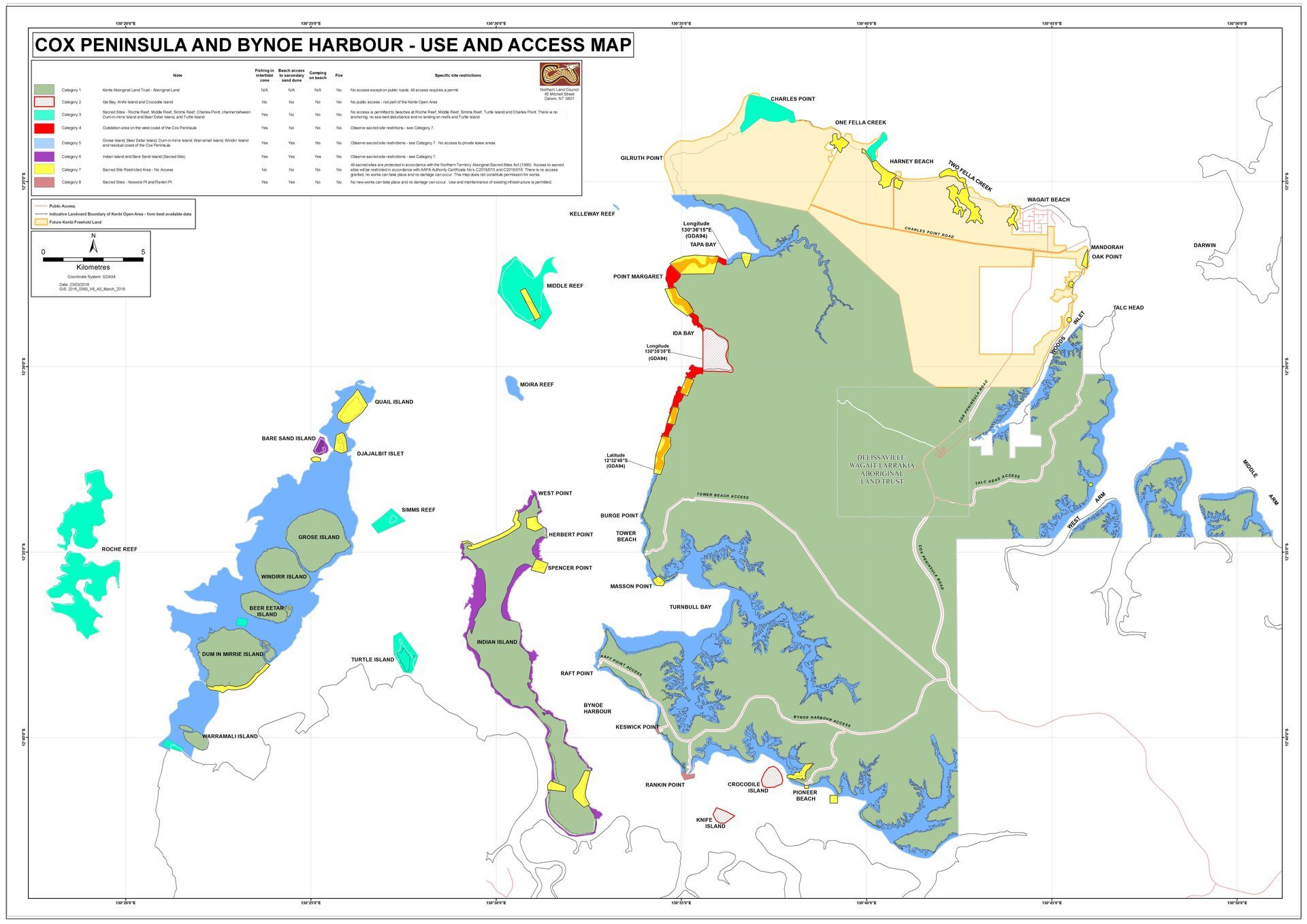Sacred sites protected under final Kenbi Open Area Declaration
The Northern Land Council has welcomed the official gazettal this week of the Kenbi Open Area Declaration over beaches and the intertidal zone of Aboriginal land in the Cox Peninsula vicinity.
The gazettal clarifies the public’s ongoing access to the area following the settlement of the long-running Kenbi land claim, while also protecting sacred sites.
In 2016, approximately 52,000 hectares of land on the Cox Peninsula, including a number of islands and reefs in Bynoe Harbour, were granted as Aboriginal land under the Aboriginal Land Rights (Northern Territory) Act 1976. This was done to settle the long-running Kenbi land claim.
As part of the settlement of the Kenbi Land Claim, the NLC and the Northern Territory government negotiated a compensation package to allow for people to access beaches and to fish in the intertidal waters and reef areas of Cox Peninsula without a permit.
By agreement, permit-free access was restricted in some areas and prohibited in others. Sacred sites have always been protected in accordance with the Northern Territory Aboriginal Sacred Sites Act 1989 and access to sacred sites has always been restricted in accordance with that Act .
In June 2016, the NLC published a map which detailed those restrictions. Since then, the Government has worked closely with the NLC and the Aboriginal Areas Protection Authority (AAPA, an Authority of the NTG), to map in detail restrictions around sacred sites. The 2016 map has now been refined following extensive consultations by AAPA and NLC with Traditional Owners and custodians. This final Declaration will give certainty to the public as to where they will be able to travel and fish at Cox Peninsula.
Significantly, access is now prohibited to Quail Island, Djajalbit Islet and the northern beach of Indian Island, because they contain important sacred sites.
Access is also prohibited to Two Fella Creek and other areas in the northern Cox Peninsula to protect a number of important sacred sites. The northern Cox Peninsula area is not Aboriginal land, but it will be granted to the Kenbi Land Trust as Kenbi freehold title under the Kenbi Land Trust Act 2011(NT). As such, it will be private land.
“This declaration will give much comfort to Traditional Owners and custodians and I welcome the Government’s commitment to protect sacred sites which are integral to the Northern Territory’s cultural heritage,” NLC CEO Joe Morrison said.
He reminded the public that Aboriginal land is private land and requested all to respect the Traditional Owners and custodians.
* The Administrator declared the final Kenbi Open Area Declaration by notice in the Gazette on Wednesday 21 March 2018.
The map of the final Kenbi Open Area Declaration showing access and sacred site restrictions can be viewed on the NLC’s website at: www.nlc.org.au/visiting-aboriginal-land/kenbi

